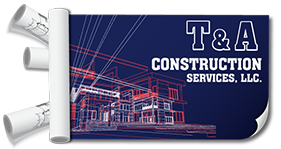BLOG

Understanding the Fundamentals of Framing in Home Building
Knowing home framing basics is essential when building or remodeling a house. Framing is what gives a home its shape and strength. Without a solid frame, walls, floors, and roofs won’t be stable.
Understanding framing helps you make smart decisions. A well-built frame ensures durability, safety, and long-term value. Let’s break down the essentials of home framing.
Home Framing Basics – What You Need to Know
What Is Home Framing?
Framing is the structural skeleton of a home. It supports everything—from walls to the roof. Without proper framing, a home won’t be safe or stable.
A strong frame also improves energy efficiency and protects against shifting foundations. That’s why choosing the right materials and techniques is important.
Types of Framing Used in Home Construction
Different framing methods offer unique benefits. The best choice depends on your budget, climate, and project needs.
Wood Framing – Affordable, flexible, and commonly used in residential construction.
Steel Framing – Strong, durable, and resistant to pests and moisture.
Structural Insulated Panels (SIPs) – Great for energy efficiency and quick installation.
Key Components of a Framing Structure
Framing involves several key elements that work together for support and stability:
Studs – Vertical beams that form the walls.
Joists – Horizontal supports for floors and ceilings.
Rafters & Trusses – Provide structure for the roof.
Sheathing – Adds stability and insulation to the frame.
Each piece plays a crucial role in keeping your home strong and secure.
The Framing Process – Step by Step
Building a solid frame requires careful planning and precision. Here’s how it works:
Step 1: Laying the Foundation – A strong base ensures framing stability.
Step 2: Constructing the Walls – Exterior and interior walls go up next.
Step 3: Installing Floor and Roof Systems – Joists and rafters provide support.
Step 4: Final Reinforcements – Everything is checked for strength and accuracy.
Each step must be done correctly to avoid costly repairs later.
Common Home Framing Mistakes to Avoid
Mistakes during framing can lead to major structural issues. Avoid these common problems:
Using low-quality materials that weaken over time.
Misaligning framing components, causing instability.
Skipping insulation, which leads to higher energy costs.
Paying attention to details now prevents big problems in the future.
FAQs About Home Framing Basics
How long does home framing take?
Most framing projects take 1-3 weeks, depending on the home’s size.
What materials are best for home framing?
Wood is common and cost-effective, but steel offers more durability.
Can I modify my home’s framing after construction?
Yes, but any structural changes require a professional’s approval.
Get Expert Guidance for Your Home Framing
A well-framed home is strong, energy-efficient, and built to last. Whether you're starting new construction or making changes, proper framing is key.
With over 25 years of experience, we are licensed and insured to handle your project with care. Call us today at (909) 325-7550 to discuss your framing needs!

Are you looking for reliable construction solutions? At T & A Construction Services LLC, we've built our reputation on 25 years of solid expertise in Monument, New Mexico. We are licensed, insured, and committed to turning your construction needs into achievements. Whether a minor adjustment or a significant development, we manage every project with sharp attention to detail and a strong commitment to integrity and quality.
